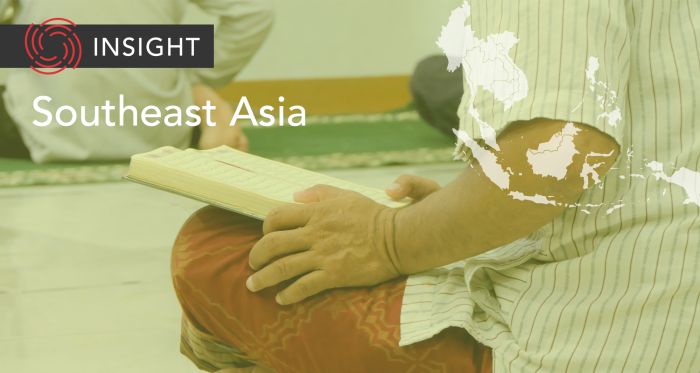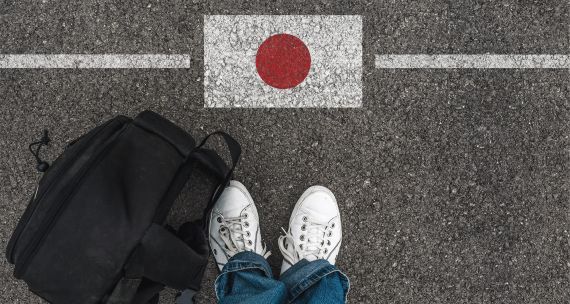The Takeaway
The unorthodox religious teachings of Panji Gumilang — a controversial Muslim preacher and founder of Al-Zaytun Ma'had Islamic Boarding School in West Java — are being lambasted by conservative proponents of Islam in Indonesia. Public outcry prompted the police to arrest Gumilang on charges of blasphemy and hate speech on August 2. The use of the country’s anti-blasphemy law to punish divergent Islamic teachings has raised concerns over the increasing prominence of Islamic conservatism in a country that ostensibly promotes a moderate, tolerant strand of Islam.
In Brief
Gumilang is the founder and head of the Al-Zaytun Islamic boarding school located in Indramayu, West Java. Founded in 1993, the newly constructed school received its first intake of students in 1999. The school is thought to be one of the largest Islamic boarding schools in Southeast Asia, with nearly 10,000 students during its early days from both Indonesia and abroad. The school is currently home to some 5,000 students. At Al-Zaytun, Gumilang allows women and men to pray together, women to deliver sermons, and Hebrew to be used in prayer services. These policies, which run counter to the gender segregation and language restrictions typical of Islamic institutions in Indonesia, are considered too progressive by many Indonesian Muslims, with some decrying the practices as “heretical.”
On June 23, Gumilang was reported to the police for blasphemy by a civil society organization called the Pancasila Defenders Advocate Forum. The organization disagreed with Gumilang’s decision to permit women to lead and preach during Friday prayers — a practice that deviates from traditional Islamic beliefs. On August 2, police detained Gumilang as part of their investigation. The cleric now faces a sentence of up to five years in prison for blasphemy, six years for hate speech, and 10 years for spreading “fake news” and “deliberately causing public chaos.”
Implications
Gumilang’s atypical Islamic teachings triggered a public backlash. In April, a video on social media showing women praying together with men at Al-Zaytun school sparked fierce protests from conservative Islamic groups. On June 15 and 22, thousands of demonstrators gathered outside the rural school to demand its immediate closure. The demonstrators were associated with the Dharma Ayu Solidarity Forum, which upholds an orthodox view of Islam. The group was angered by statements from Gumilang, who on June 14 stated that the Quran was not the word of God, but rather were the words of the Prophet Muhammad, which were obtained through revelations. While the demonstration was initially peaceful, some protesters made attempts to forcefully enter the school grounds. The Indonesian police deployed 1,200 personnel to safeguard the demonstrations.
The increasing use of the anti-blasphemy law raises concerns over freedom of religion and speech. Human rights groups are wary of the increasing use, or ‘weaponization,’ of blasphemy laws to target religious minorities and those considered to be insulting Islam. Rights groups such as the Indonesia-based Setara Institute are concerned that Indonesia’s blasphemy law curbs freedom of religion and expression and have pleaded with the government to be fair in handling the Al-Zaytun case.
Indonesia’s rising conservatism threatens the country’s pluralism. Indonesia recognizes six official religions: Islam, Protestantism, Catholicism, Hinduism, Buddhism, and Confucianism. As Islam is the majority religion in Indonesia, it plays a prominent role in Indonesian society and governance. Indonesia is known abroad for its moderate and tolerant strand of Islam, but this image seems to be fading as conservative groups grow in influence and pressure the government to use blasphemy laws against those breaking the central tenets of Islam.
Religious minority groups officially recognized by the government often face discrimination and persecution in Indonesia. For example, the Ahmadiyya community — which does not follow Sunni Islam (followed by the majority of Indonesian Muslims) — was forced out of its village by Sunni hardliners in 2006 and has been living in government housing in Lombok, West Nusa Tenggara, since then. The persecution of religious minority groups has reportedly continued due to inaction by the government, which fears being labelled “un-Islamic” by Muslim hardliners.
What’s Next
- Future of Al-Zaytun School
Islamic boarding schools in Indonesia — commonly known as pesantren — such as Al-Zaytun are subject to oversight by Indonesia’s Ministry of Religious Affairs, rather than the education ministry. In light of Gumilang’s arrest, the Ministry of Religious Affairs has announced plans to introduce new management at Al-Zaytun as well as a new curriculum.
- Presidential elections approach
Former governor of Jakarta Anies Baswedan is set to run in the 2024 presidential election, alongside Defence Minister Prabowo Subianto and Central Java Governor Ganjar Pranowo. Anies is vying for the top job with the support of the Coalition for Change — a political alliance between the conservative Islamist Prosperous Justice Party (PKS) and two moderate parties, the Democratic Party and NasDem Party. Anies, who was previously considered a moderate, gained the reputation of a religious conservative after aligning himself with PKS and becoming governor of Jakarta in 2017. While Anies has tried to rebrand himself as a pluralist leader in recent years, speculation remains regarding his stance on the rising religious conservatism in the country.
- Criminal code revisions in 2025
In December 2022, Indonesia’s lower house fast-tracked revisions to Indonesia’s criminal code, which will be effective starting in 2025. The section on blasphemy in the revised criminal code has expanded from one to six articles. The jail sentence for blasphemy, originally set at five years, has been decreased to a maximum of three years, and five years if it involves displaying or circulating content considered offensive. The revisions also introduced jail sentences of two years for inciting a person to become “irreligious” or change their religion or beliefs. The new provisions could disproportionately discriminate against women, religious minorities, and LGBTQ+ groups. Critics have voiced serious concerns regarding the backsliding of civil liberties and human rights under the new criminal code.
• Produced by CAST's Southeast Asia team: Stephanie Lee (Program Manager); Alberto Iskandar (Analyst); and Saima Islam (Analyst).




